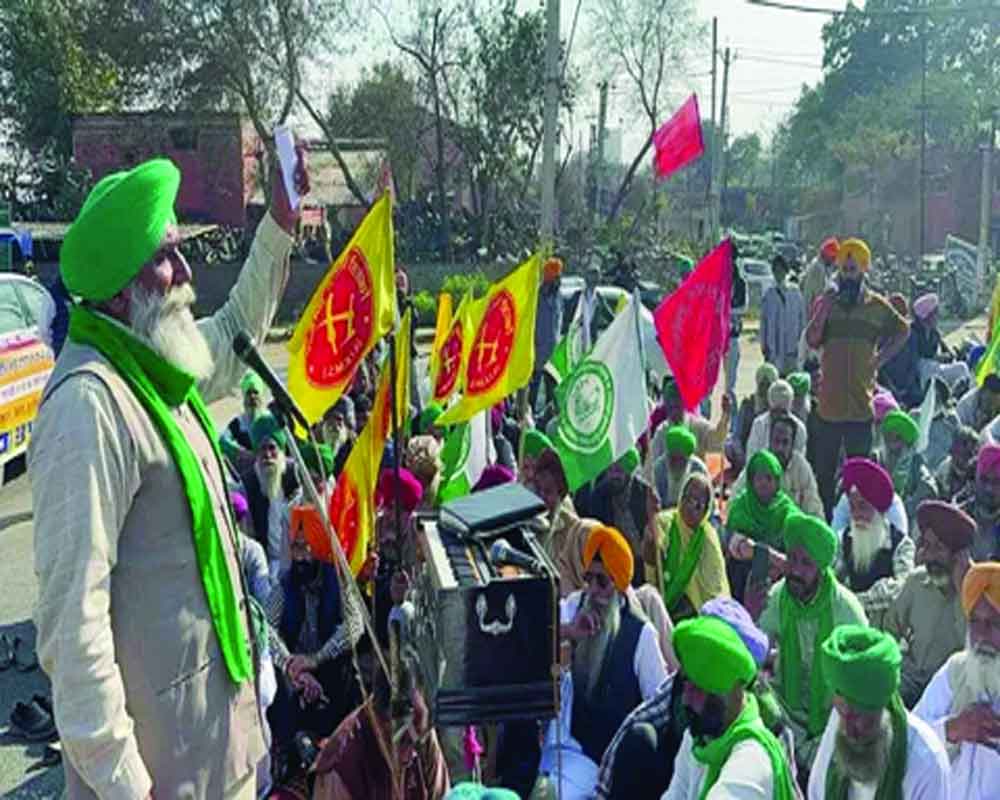Protesting farmers reject Government’s offer on MSP, ‘Delhi Chalo' march to resume today
Agitating farmers intend to intensify their 'Delhi Chalo' protest from Wednesday as their negotiations with the Government remain deadlocked. With both sides adamant on their respective positions, it seems unlikely that the stalemate will end in a hurry despite several rounds of dialogue. Foremost among the farmers' demand is the insistence on legal assurances for a minimum support price (MSP) across all crops, coupled with open-ended procurement of 23 key crops under MSP. Additionally, they seek complete debt waiver for both farmers and farm labourers, along with a reversal of policies perceived as detrimental to their interests. Central to their demands is the implementation of crop prices in line with the recommendations of the Dr MS Swaminathan Commission’s report. Farmers are pushing for pensions to be extended to both farmers and farm hands, as well as a waiver on any increase in electricity tariffs. They also seek nationwide enforcement of the Land Acquisition Act of 2013. The demands extend to the realm of international trade, with calls for India’s withdrawal from the World Trade Organisation (WTO) and a freeze on all Free Trade Agreements (FTAs). One may agree or disagree with their demands but these are not unconstitutional.
The latest development in the saga has the farmers rejecting the Government’s MSP offer, signalling the resumption of the ‘Delhi Chalo’ march. The offer, which was made in the midst of ongoing negotiations, failed to meet the farmers’ expectations. The MSP offer, though presented as a goodwill gesture by the Government, was perceived by farmers as insufficient and lacking concrete assurances. Despite assurances from the Government side regarding the continuation of MSP, farmers remain sceptical that the lack of legal guarantees and deregulation could eventually lead to the dismantling of the MSP system. The ‘Delhi Chalo’ march posturing goes back to 2020, when thousands of farmers from various States converged on the outskirts of Delhi to protest against the farm laws. The march garnered widespread support and attention, both nationally and internationally, highlighting the gravity of the issues. The decision to resume the march underscores the farmers’ plan to continue their struggle; it is also a flashback of farmers’ siege of the Capital not very long ago. The Government seems to have made the Capital a fortress which, however, does not augur well for a democratic system. Dialogue, not confrontation, should be the way forward. The farmers must respect the law of the land while the Government should try to assuage their anger. It would be prudent to accept some, if not all, farmer demands so that a conducive atmosphere is built for the talks to continue in a congenial atmosphere. As the protest enters a new phase, it is imperative for both sides to engage in constructive dialogue to find a viable solution to the impasse. It is a call to action for all stakeholders to prioritise the nation's interests and work towards a fair and equitable resolution.


























